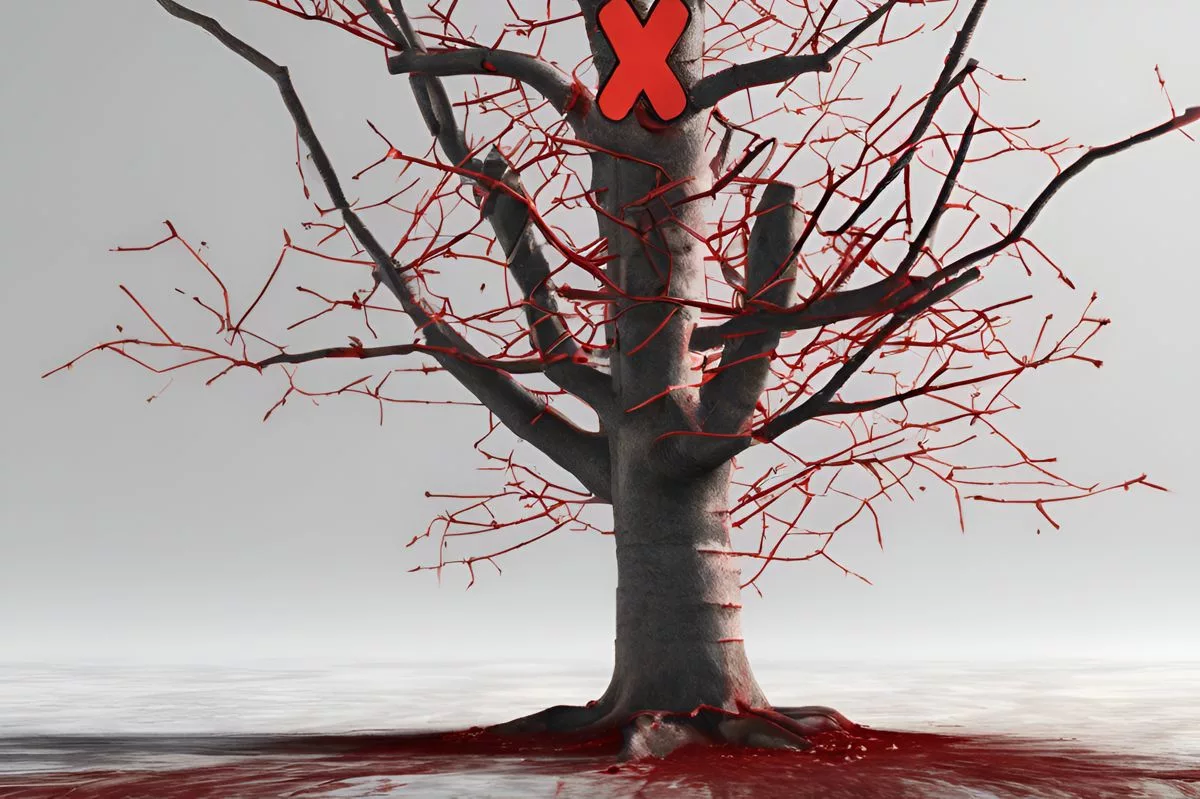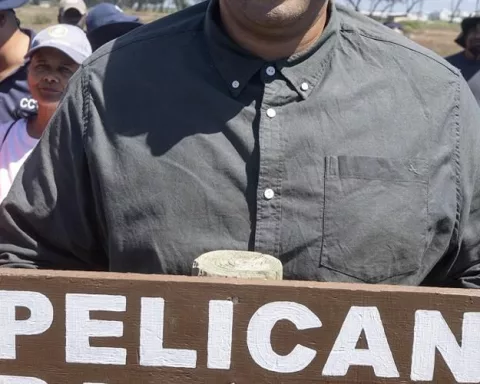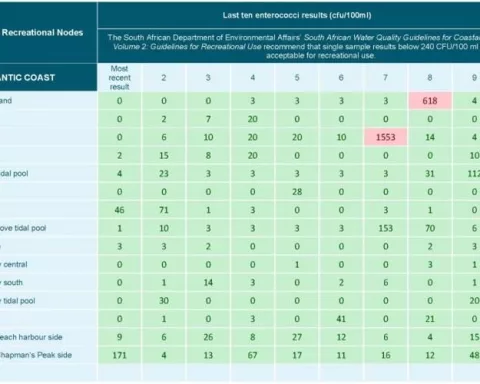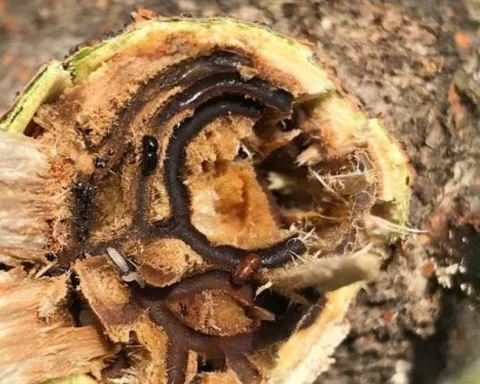Cape Town is taking on the destructive Polyphagous Shot Hole Borer Beetle (PSHB) that threatens its urban forest. The city’s Invasive Species Unit is providing training sessions to help residents recognize infested trees, handle affected biomass, and impede the beetle’s spread. The program aims to empower individuals and businesses alike to protect their green spaces effectively and preserve the city’s ecological heritage. With the united efforts of its citizens, Cape Town is rising to the challenge of this formidable foe.
How is Cape Town tackling the Polyphagous Shot Hole Borer Beetle?
Cape Town is empowering its citizens with the knowledge and tools to combat the destructive Polyphagous Shot Hole Borer Beetle (PSHB), which is threatening the city’s urban forest. The city’s Invasive Species Unit is offering training sessions to guide attendees in recognizing infested trees, handling affected biomass, and impeding the beetle’s expansion. The program also focuses on empowering individuals and businesses, enabling them to safeguard their green spaces effectively and protect the city’s ecological heritage.
In the picturesque urban setting of Cape Town, where the mighty Table Mountain and the radiant Atlantic Ocean serve as stunning backdrops, an unexpected conflict is escalating. This confrontation isn’t human against human, but rather, human against an incredibly small yet fearsome adversary: the Polyphagous Shot Hole Borer Beetle (PSHB).
The Threat to Cape Town’s Urban Forest
Renowned for its intrusive characteristics, the PSHB is directly threatening Cape Town’s treasured urban forest. The infamy of this beetle arises from its knack for infiltrating trees, subsequently leading them to their fatal ends. The beetle has already made disastrous impacts in several city zones, such as Constantia, Eerste River, Newlands, and Helderberg. No tree species is immune to this pest, with casualties spanning from Black Locusts and Beef Woods to London Planes and Maples.
Empowering Citizens through Knowledge and Tools
In light of the extensive damage the PSHB could inflict, the city has taken proactive measures to arm its residents with the essential knowledge and means to confront this beetle. Alderman Eddie Andrews, Deputy Mayor and Mayoral Committee Member for Spatial Planning and Environment, unveiled a complimentary training session on the PSHB, specifically targeting businesses that deal with trees and plant materials.
However, this informative opportunity is not exclusive to businesses. Residents are strongly encouraged to participate. As Alderman Andrews noted, “The support and cooperation of residents and businesses that work with plant materials are crucial in halting the pest’s spread.” The objective of this training is to guide attendees in recognizing infested trees, appropriately handling the affected biomass, and impeding the beetle’s expansion.
This learning session, hosted by the City’s Invasive Species Unit, will thoroughly discuss the PSHB, including its propagation, the potential risks it poses, and the current infestation status within Cape Town. The participants will also learn about the procedures to follow concerning infested trees and biomass, a crucial step towards halting the pest’s progression.
Tackling a Cunning Adversary
The PSHB is a formidable challenger. It can easily traverse across different suburbs, using vehicles, clothing, and even gardening equipment as modes of transportation. The City acknowledges the complexity of this foe and has tailored the training to address this challenge from various angles.
Participants will be taught to recognize infestation indicators. These indicators include branch dieback, gumming, entry and exit holes, and staining on the tree. One crucial point being stressed is that infested trees must be processed on-site to keep the pest from spreading elsewhere.
Managing infested trees demands specialized handling techniques. The training program offers guidance on how to deal with the infested biomass, from using the sun’s heat to sterilize the biomass on-site, to disposing of it correctly at approved incineration facilities.
A City United for Environmental Stewardship
Cape Town’s training session extends beyond merely combating the PSHB. The program also focuses on empowering individuals and businesses, enabling them to safeguard their green spaces effectively. It equips the city’s citizens with the knowledge needed to protect their local ecosystems.
Cape Town, throughout its history, has demonstrated remarkable resilience. Whether battling socio-political changes or natural disasters, the city has consistently risen to the challenge. Now, it is facing a new opponent – the PSHB. However, with the city’s proactive initiatives and the united efforts of its citizens, there is optimism that Cape Town’s green lungs will prevail over this beetle menace.
In this fight against the PSHB, more is at stake than merely the survival of the trees. The battle is about preserving Cape Town’s diverse biodiversity, its lively urban forest, and, ultimately, the city’s ecological heritage. Thus, this training session represents not just a stand against a destructive pest, but a commitment to the city’s environmental stewardship and a testament to Cape Town’s determination to protect its invaluable green cover.
What is the Polyphagous Shot Hole Borer Beetle (PSHB)?
The Polyphagous Shot Hole Borer Beetle (PSHB) is a small yet destructive beetle that infiltrates trees, causing them to die. No tree species is immune to this pest, and it has already caused significant damage in various parts of Cape Town.
Who is providing training sessions for combating the PSHB?
The city’s Invasive Species Unit is providing training sessions to guide residents and businesses in recognizing infested trees, handling affected biomass, and impeding the beetle’s spread.
Who can participate in the training sessions?
The training sessions are open to both residents and businesses dealing with trees and plant materials. The support and cooperation of residents and businesses are crucial in halting the pest’s spread.
What will participants learn in the training sessions?
Participants will learn to recognize infestation indicators, handle infested biomass, and impede the beetle’s spread. The training will also cover the propagation of the PSHB, the potential risks it poses, and the current infestation status within Cape Town.
How can infested trees be managed?
Infested trees must be processed on-site to prevent the pest from spreading elsewhere. The training program offers guidance on how to deal with infested biomass, from sterilizing it on-site to disposing of it correctly at approved incineration facilities.
What is the objective of the training program?
The training program aims to empower individuals and businesses to protect their green spaces effectively and preserve Cape Town’s ecological heritage. It is a commitment to the city’s environmental stewardship and a testament to Cape Town’s determination to protect its invaluable green cover.












